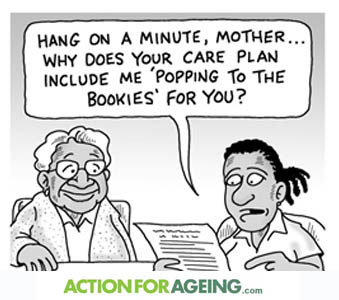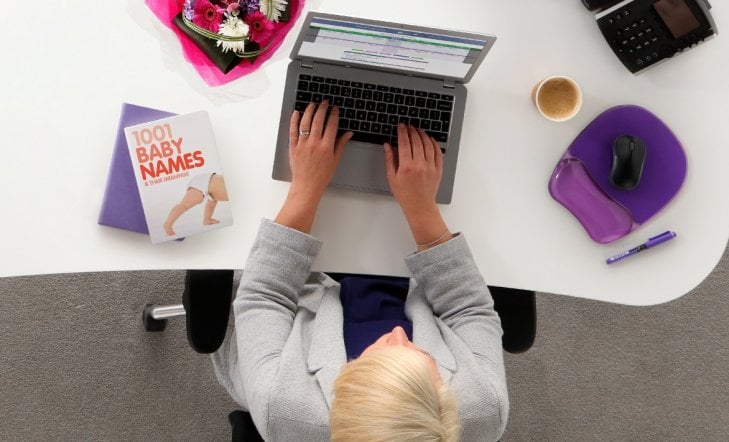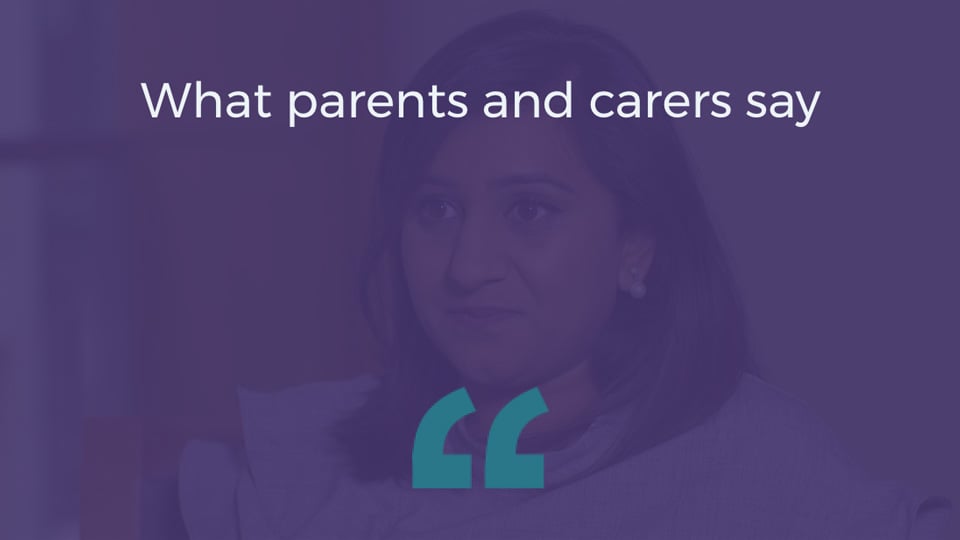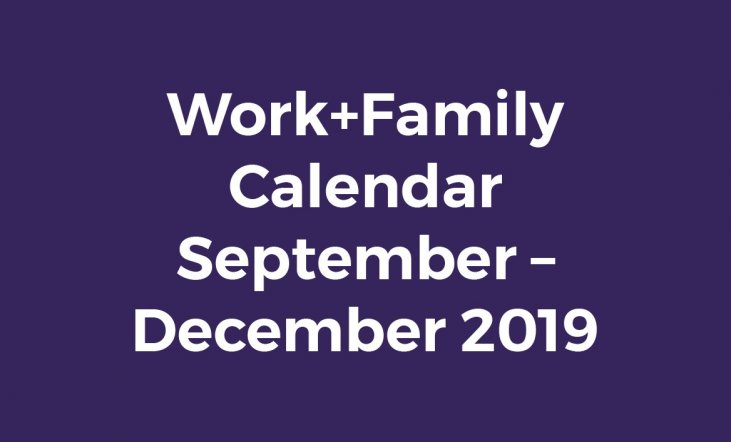Newsletter Sign Up
Regular work+family updates for
HR and diversity professionals.
My Family Care asks Chris: With September comes a refocus on our work life balance. With the holidays over, children going back to school and buckling down before Christmas why is a good balance important. Some individuals are caring for an elder as well, why is a good work/life balance important and what advice can you give on how to achieve this?
We all appreciate life is stressful enough if we are just looking after ourselves, going to work and running our home. If we add the extra challenges a partner, children and parents can bring to the mix, sometimes all at once, then we have a fairly decent recipe for stress.
- Why do we need to maintain a good life/work balance?
- It helps to maintain our overall wellbeing
- It helps us function at our best
- Maintaining balance helps keep our morale and enthusiasm up.
- It helps to enable us to continue providing care or support - as the saying goes - "It is better to take a break, than break down."
- Having balance helps us engage in a positive way with our children, partner, parents and friends
- It's harder to get out of bed if we feel that our life is all work and no play!
Some tips for maintaining work life balance
Maintaining our own health:
- Exercise - keeping our body fit helps maintain mental wellbeing. The NHS Choices website has fantastic (and free!) info, programs and links.
- Eating well - maintaining a healthy and balanced diet also has a direct and significant impact on our mental and physical wellbeing, hence our capacity to look after ourselves and provide care and support for others. The NHS Choices website and Carers UK provide helpful info and resources.
- Sleeping - Getting enough sleep is very important to help us function well. Tip sheets and handy links are available on the CareWell website
- Avoiding bad habits - e.g. excessive alcohol, smoking, drugs. No surprises there!
- Laughter - It's the best medicine. Whether it is watching a comedy show on TV or a funny clip on YouTube, having a laugh on a phone call with a friend or finding (making!) the time to visit a stand-up comedy night locally, the fact is that laughter can have a positive impact on our wellbeing and health! More information on laughter can be found on the HelpGuide.
Managing life and responsibilities by:
- Seeking help - care for the carer (you) is critical. There are a number of great organisations that can help, with respect to resource and advice on all aspects of care and care giving across all areas of physical, financial and emotional support.
Some of these are:
Carers UK
Age UK
CareWell
EngageWithYou
FirstStop - Accepting help - from family, friends, neighbours and organisations. People like to help, they often want to help and it makes them feel good to be able to help. So we should do them a favour and let them help if they offer!
- Accepting 'Good enough' instead of demanding 'perfect' from ourselves - and others
- Maintaining social connections - this is important for us and for those we are caring for. Seeing and engaging with other people will help relieve stress and provide an opportunity to share our thoughts and feelings. It's also important to remember that loneliness and depression are common experiences amongst carers, so maintaining active links with others is important. The Campaign To End Loneliness has many resources and info that can help
- Utilising technology - Taking action that can help reduce our workload, personal admin pressure and travel requirements. Examples are arranging direct debits for bills, having groceries ordered online (and home delivered) and using Skype to 'visit' family and friends who live a distance away
- Being organised - good time management can mean doing things more efficiently, not rushing and forgetting things, plus if we have a specific time designated for 'work', then by default we have the remaining specific time for 'life'
- To compare is to despair! - We need to try and avoid looking at the seemingly 'easy' life of friends or relatives and comparing it to ours, as often things are different than they appear. We all know this, 'the grass is always greener', etc, but it helps to remind ourselves too
- Try to avoid guilt - If we are doing the best we can, then no one can ask any more of us. Doing our best doesn't mean 'working' 24/7. Guilt is a very common issue that care givers universally struggle with. Many people find reading about the experience of others and sharing their own, on forums such as those of Carers UK, can be of great help. As people can then know that others out there also feel as they do and that it is okay to do so.
Wheel of Life
A great activity to help you identify, evaluate and maintain a good life/work balance is the Wheel of Life.
- Identifying how balanced your life currently is
- Identifying what areas of your life are most important to you, what your goals are
- Identifying the actions needed in order to achieve those goals and create your desired balance
- Monitor and maintain the balance.
Everyone's Wheel of Life is different. The most important thing is to identify your own work-life balance and figure out the best way to work towards it!
Chris Minett, Founder of Action for Ageing












